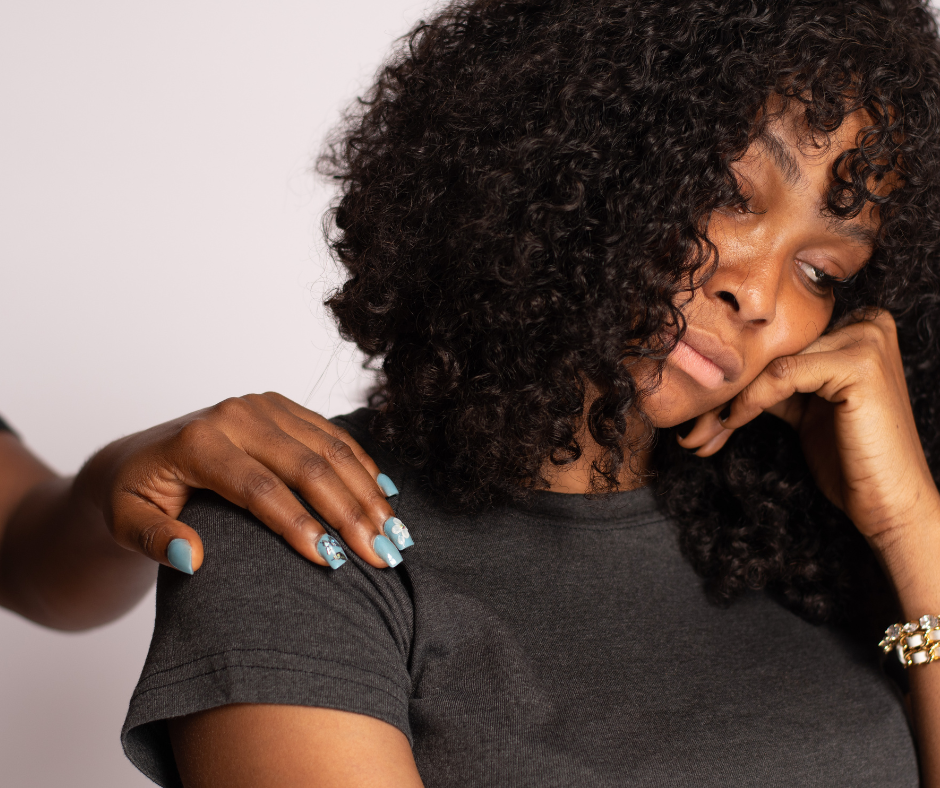When Compassion Feels Like a Burden: Turning Emotional Walls into Healthy Boundaries
What once felt like a burden can become a gift when protected by healthy boundaries.
Have you ever felt like you absorb the emotions of everyone around you — almost like a sponge?
You walk into a room and instantly sense tension that no one has spoken aloud.
You leave conversations feeling heavy, even when the situation had nothing to do with you.
If that sounds familiar, you may carry what psychologists call high empathy — an extraordinary sensitivity to the emotions and needs of others. For many, this sensitivity is beautiful and life-giving. But when it goes unmanaged, it can become overwhelming.
Over time, many deeply empathetic people begin to protect themselves in the only way they know how: by building emotional walls. Those walls keep them from being flooded by others’ feelings — but they also keep love, connection, and joy at a distance.
The Gift Beneath the Overwhelm
Many people who feel deeply come to see their sensitivity as a weakness. They say things like, “I feel too much,” or “I take on everyone’s pain.” But what if that very sensitivity is actually a God-given gift of compassion?
Empathy, at its core, is the ability to understand and feel another person’s emotions.
Compassion takes it a step further — it’s empathy infused with love and the desire to help.
Research shows that compassion is linked to resilience, stronger relationships, and greater life satisfaction (https://pmc.ncbi.nlm.nih.gov/articles/PMC9015224/). It activates areas of the brain associated with caregiving and connection. But when empathy lacks boundaries — when we absorb emotions instead of noticing them — it can lead to burnout, anxiety, and emotional exhaustion (https://pmc.ncbi.nlm.nih.gov/articles/PMC4340688/).
That’s when walls go up.
Walls that say, “I’ll be safe if I don’t feel too deeply.”
Walls that protect, but also isolate.
Walls vs. Boundaries
There’s a subtle but powerful difference between walls and boundaries.
Walls are rigid; they keep everything out — the pain and the possibility of love.
Boundaries are flexible; they let love in but keep chaos at a healthy distance.
Researcher Brené Brown puts it simply: “Compassionate people are boundaried people.” (https://www.lighthousecommunity.global/post/bren%C3%A9-brown-how-boundaries-increase-our-empathy-compassion).
In other words, the most loving, generous people you know probably have very clear limits.
Without boundaries, empathy becomes self-sacrifice.
With boundaries, empathy becomes strength.
Learning to Steward the Gift
When people begin to recognize that their sensitivity isn’t a flaw but a gift, something shifts.
They move from shame to purpose.
From self-protection to self-stewardship.
Here are a few truths that help in that process:
Empathy and compassion are different.
Empathy says, “I feel your pain.”
Compassion says, “I see your pain, and I want to help — but I don’t have to carry it.”
That small difference can transform your emotional life (https://www.frontiersin.org/journals/psychology/articles/10.3389/fpsyg.2025.1522701/full).Boundaries protect the gift.
Boundaries aren’t rejection; they’re structure. They allow you to keep your heart open without losing yourself.
You can care deeply and still say, “I need to pause for now.”Self-compassion is essential.
Being kind to yourself sustains your capacity to be kind to others. When your own vessel is cracked or drained, you cannot pour out. Research on self-compassion and flexible relational boundaries confirms this (https://self-compassion.org/wp-content/uploads/2021/11/Luchner-and-Snyder-2020-The-Importance-of-Flexible-Relational-Boundaries-.pdf).Rest and replenishment are part of your calling.
Even Jesus withdrew to pray and rest. Compassion is powerful — but it’s meant to flow from a heart that’s filled, not drained (https://heidigoehmann.com/articles/empathy-better-with-boundaries).
How to Start Building Your First Boundary
Boundaries don’t appear overnight — they’re learned, practiced, and refined with grace.
Here are a few simple, research-informed and faith-aligned steps to help you begin:
Pause and name what’s yours.
Before reacting to someone else’s emotions, take a breath and ask, “Is this mine to carry?”
Naming what belongs to you (and what doesn’t) is the first act of boundary awareness.Choose one small limit.
Start simple: perhaps limit how long you listen to draining conversations, or take five quiet minutes after an emotional exchange.
Boundaries built in small, consistent steps are easier to maintain than drastic ones.Communicate with kindness and clarity.
Use language that holds compassion and truth together:
“I care deeply about you, but I need a little space right now.”
Boundaries expressed gently protect both you and the relationship.Ground yourself after emotional moments.
Practice a grounding ritual — step outside, breathe deeply, pray, or journal.
This helps your nervous system return to calm and prevents emotional overload.Revisit your boundary with grace.
Healthy boundaries evolve. If you slip, it doesn’t mean you’ve failed — it means you’re learning to live with greater wisdom.
Celebrate progress, not perfection.
From Walls to Wisdom
When compassion is stewarded wisely, it doesn’t drain you — it strengthens you.
You begin to realize that protecting your peace doesn’t make you cold; it makes you capable of loving well.
You stop seeing your empathy as a burden and start seeing it as a bridge — one that connects you to others while still honoring your own emotional space.
So if you’ve built walls to survive, that’s okay.
They served a purpose for a season.
But maybe it’s time to turn those walls into boundaries — and to see your sensitivity for what it truly is: a gift meant to bring healing, not exhaustion.
Because when compassion flows freely — and safely — it doesn’t just heal others.
It heals you, too.
Further Reading
If this resonated with you, you may also enjoy my related post:
👉 When Boundaries Become Walls: Are You Protecting Yourself or Locking Love Out?


